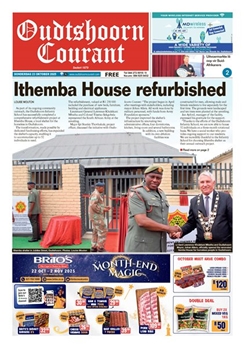
Oudtshoorn Courant proudly displays the “FAIR” stamp of the Press Council of South Africa, indicating our commitment to adhere to the Code of Ethics for Print and online media which prescribes that our reportage is truthful, accurate and fair. Should you wish to lodge a complaint about our news coverage, please lodge a complaint on the Press Council’s website, www.presscouncil.org.za or email the complaint to enquiries@ombudsman.org.za. Contact the Press Council on 0114843612.
Copyright 2025 Group Editors Company (Pty) Ltd, Registration Number 1963/002133/07 t/a Oudtshoorn Courant















